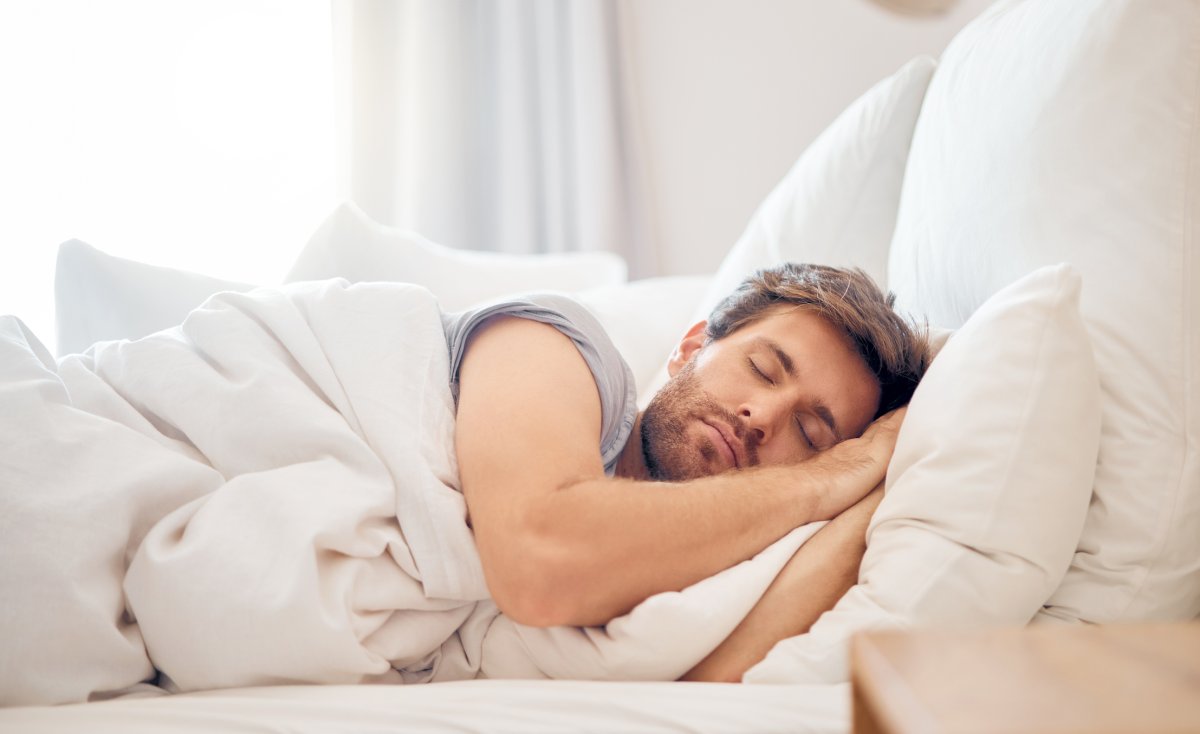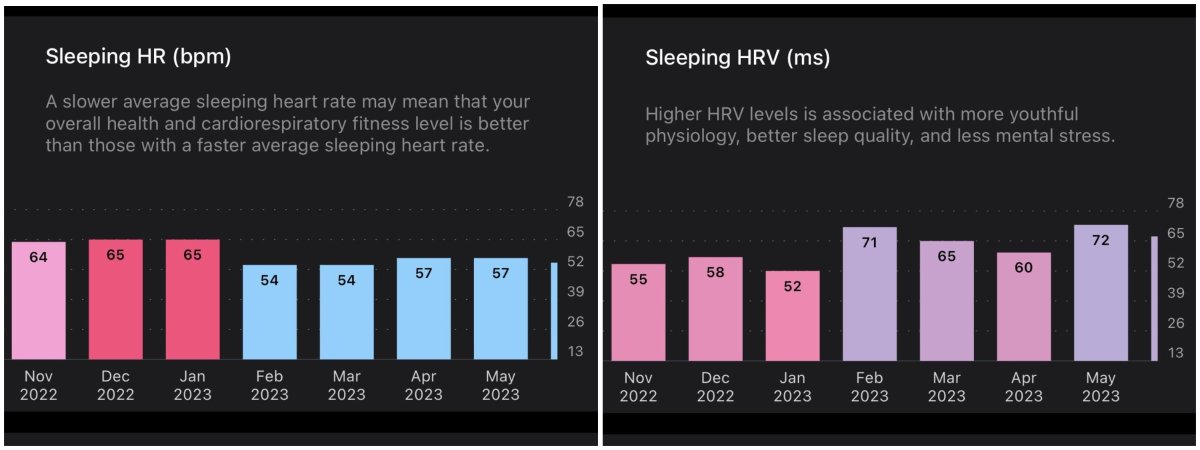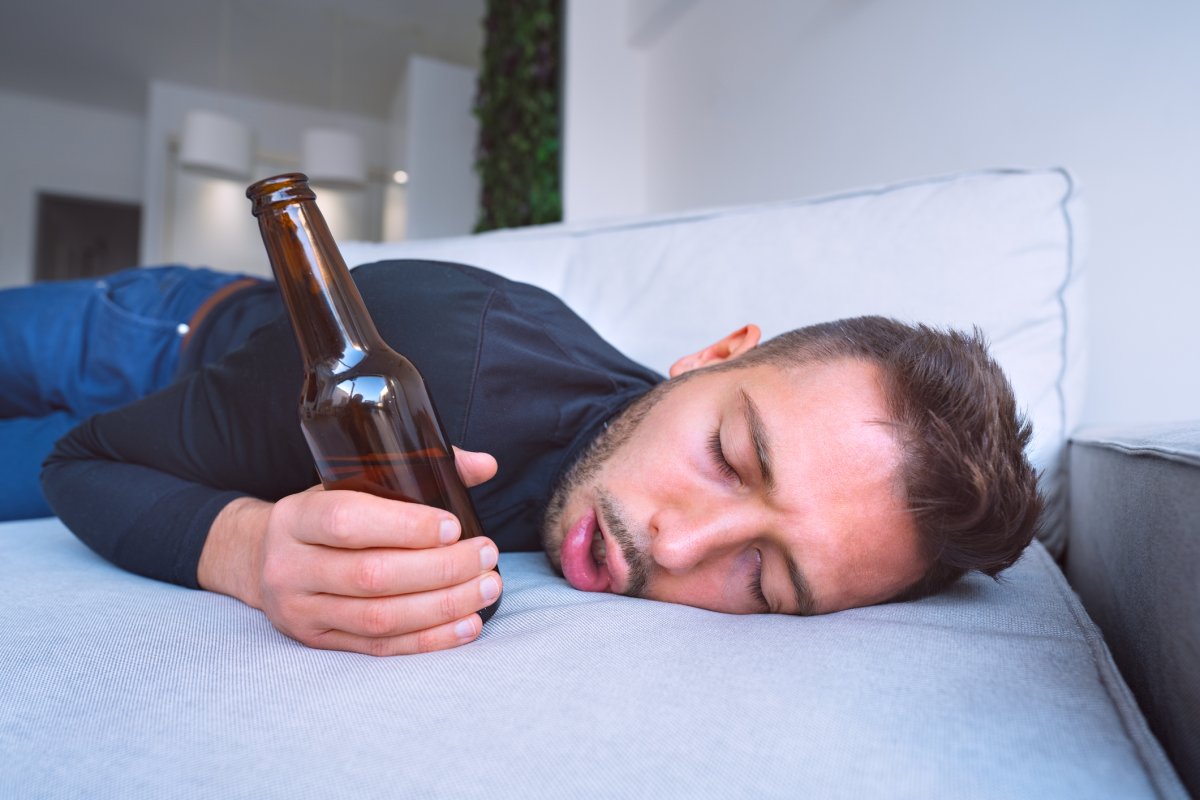A man in Louisiana has shared his sleep metrics from before and after going sober, and the results are astonishing.
Brody Hay, 28, stopped drinking alcohol five months ago.
"Since cutting alcohol, I feel as if I've stepped into an entirely new life as a new man," Hay told Newsweek. "My mental clarity is sharper than ever; it's almost as if I've emerged from this perpetual mental fog. My energy levels and motivation have been through the roof compared to the levels I had when drinking."
Before going sober in mid-January, Hay would typically consume one or two alcoholic beverages every day, with the occasional binge on a night out with his friends or partner.
"This would usually become six to 10 drinks on average, but sometimes even more if it was a longer event," he said. "Alcohol began to really strain my relationships, and I tried and failed moderation far too many times."

Just after his 28th birthday, Hay decided to quit drinking cold turkey. Within weeks, he began to notice that his sleep had significantly improved.
"This was one of the more apparent changes and was noticeable after the first two weeks or so," he said. "I find it much easier to fall asleep and stay asleep [and] I feel more rested upon waking."
Hay also has the numbers to prove it. Using a sleep app on his Apple watch, Hay has been able to track how his sleep has improved over the five-month period.
"As you can see, my sleeping heart rate was 65 bpm [average] and my HRV [heart rate variability] was 55 ms [average] when I was consuming alcohol," Hay said. "After becoming sober, my sleeping heart rate is now 56 bpm [average] and my HRV is now 67 ms [average]."

The metrics not only provide an insight into Hay's sleep quality, but they reveal the status of his general health and fitness level.
- Sleeping heart rate—a lower sleeping heart rate is connected to better cardiovascular health overall, but it can also affect your sleep. According to the Sleep Foundation, high heart rates are associated with taking longer to fall asleep and experiencing lower sleep quality.
- Sleeping heart rate variability—heart rate variability measures fluctuations in the time between heart beats. It essentially measures how adaptable your heart rate is. Higher HRV values tend to be associated with a more youthful physiology, better sleep quality, and less mental stress.
Since quitting alcohol, Hay has seen a 16 percent decrease in sleeping heart rate and a 22 increase increase in HRV.
It is no secret that alcohol can affect sleep quality. While a nightcap might help you fall asleep at first, alcohol has been shown to disrupt your natural sleep cycle, suppressing REM sleep in the first half of the night and increasing light sleep and wakefulness in the second half.
According to the Sleep Foundation, even low amounts of alcohol—that is less than two drinks for men and less than one drink for women—can decrease sleep quality by up to 9.3 percent.
The exact mechanism behind this is still unclear, but a study in 2018 found that alcohol might affect the expression of certain genes involved in sleep regulation. Heavy alcohol use has also been associated with various sleep disorders, including insomnia and sleep apnea.

Hay, who is a quality control chemist, often has to work late at night, so his sleep schedule is already fairly variable.
"Cutting out alcohol has made it far easier to make the transition from nightshift to dayshift and vice versa," he said. "And that improved sleep has permeated into other aspects of my life, creating monumental, positive improvements across the board."
However, his improved sleep metrics and cardiorespiratory fitness might also have something to do with the lifestyle changes he has made since going sober.
"Since quitting alcohol, I've lost approximately 15 pounds," he said. "Almost the entirety of that weight has been fat and water weight. My cardiovascular endurance has greatly improved [and] I'm in the best shape I've been in in roughly 4.5 years.
"Before getting sober, I was lethargic, bloated, unmotivated and moody. Now I'm a happier, healthier, better-looking, more pleasant person. I can't overstate how much it feels as if I've stepped out from under a dark cloud and into a new life."
As convincing as Hay's results might be, going sober can be a lot easier said than done. So Hay shared some advice from his own experience:
- Change your mindset—"You have to have that honest, uncomfortable talk with yourself and truly want to make the change."
- Make new habits—"Even after not craving alcohol itself, I was still accustomed to certain rituals/habits. For example, around the time I would normally have my evening glass of whiskey, I felt the urge to go through the motions of making a drink and sipping on it. To satisfy that habit, I would instead make an evening cup of tea."
- Create a healthy environment—"Your environment is crucial, especially in the early days. I turned down a few invites to events that I knew would tempt me during that first month. Once I physically broke the urge to drink, I was able to go to these events and have zero temptation to consume alcohol."
- Try alternatives—"I no longer feel the need to drink in those social settings, but occasionally I will bring zero alcohol beer to a crawfish boil or order a mocktail at a special event just as a ceremonial nod."
- Change your lifestyle—"I found coupling other positive behaviors with sobriety to be quite helpful and synergistic. I started to work out more frequently, eat cleaner, budget better, read more, get off of social media, and become more social in the real world when I got sober."
Is there a health issue that's worrying you? Do you have a question about alcohol? Let us know via health@newsweek.com. We can ask experts for advice, and your story could be featured on Newsweek.
Uncommon Knowledge
Newsweek is committed to challenging conventional wisdom and finding connections in the search for common ground.
Newsweek is committed to challenging conventional wisdom and finding connections in the search for common ground.
About the writer
Pandora Dewan is a Senior Science Reporter at Newsweek based in London, UK. Her focus is reporting on science, health ... Read more
To read how Newsweek uses AI as a newsroom tool, Click here.








